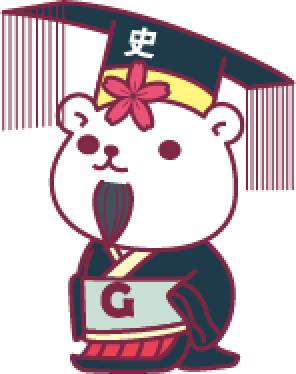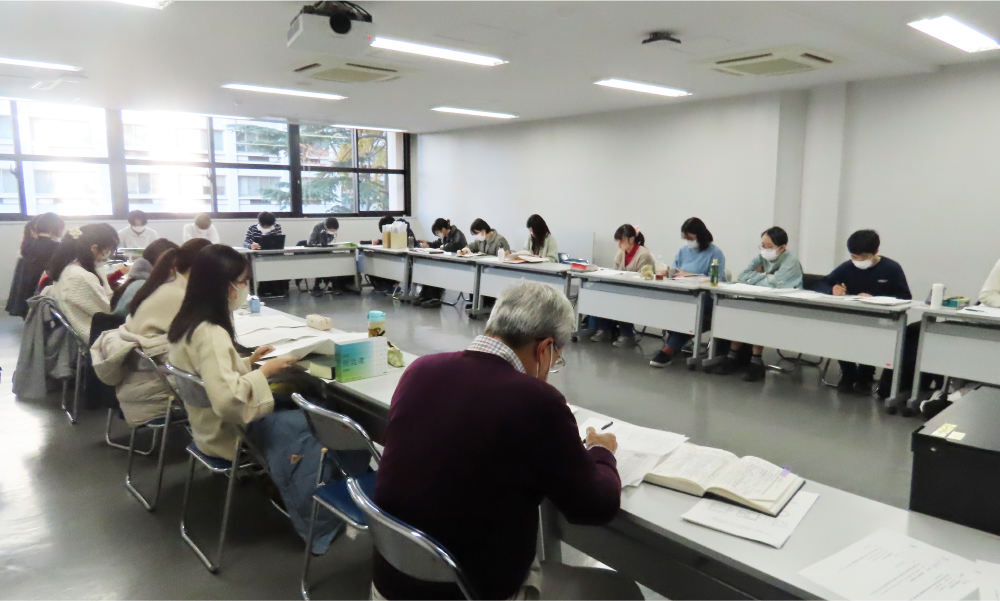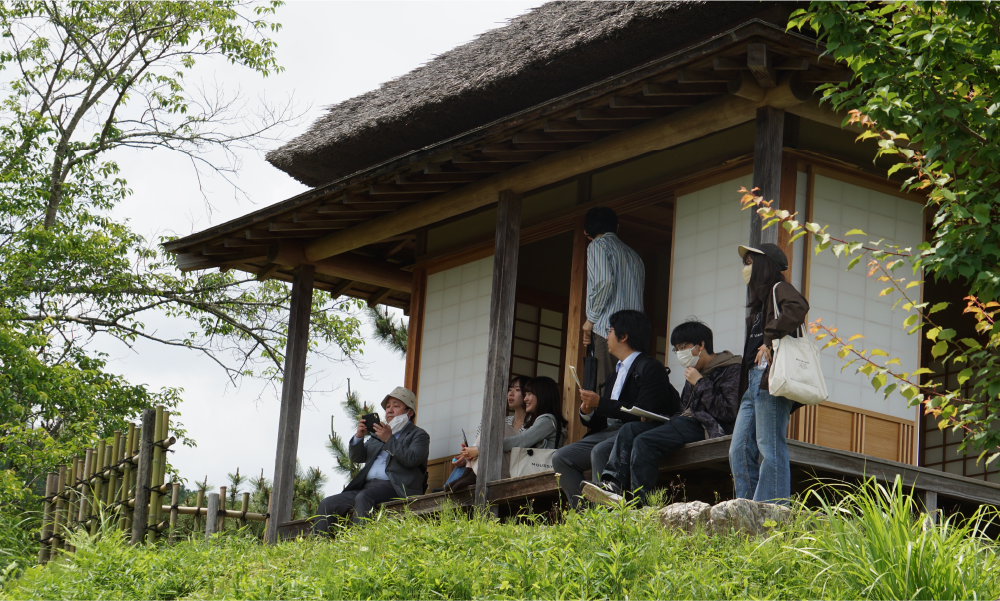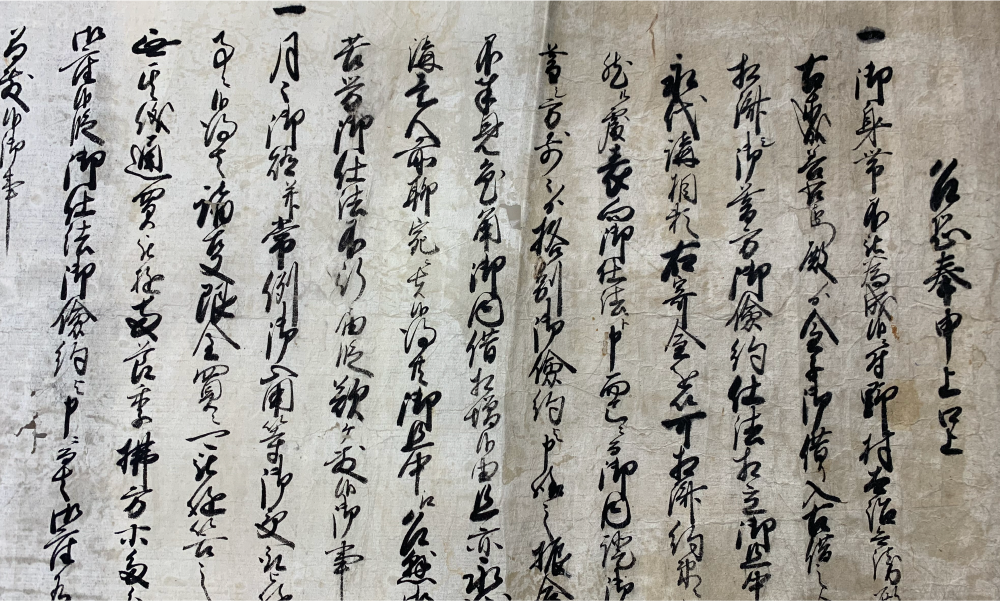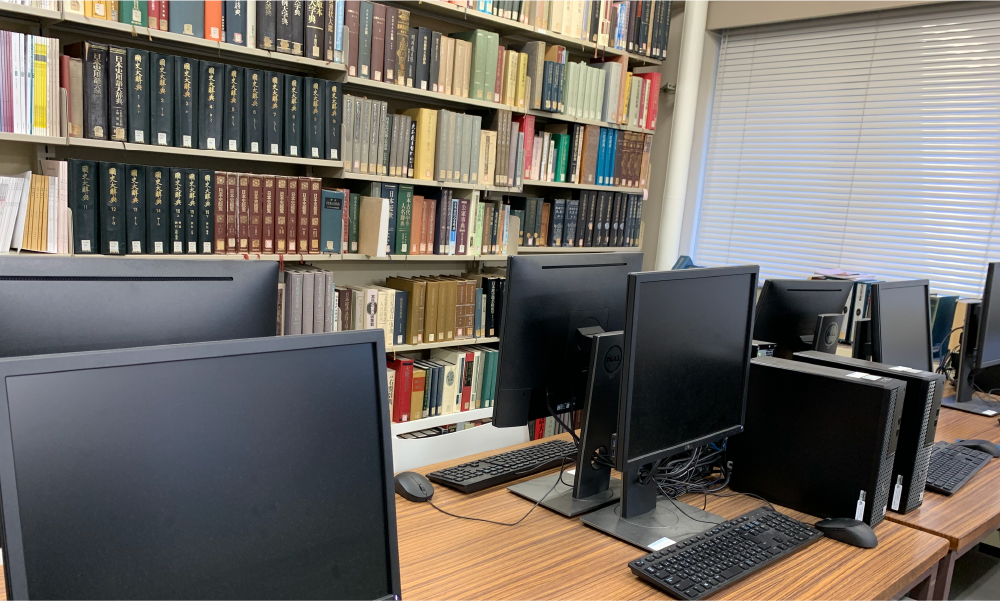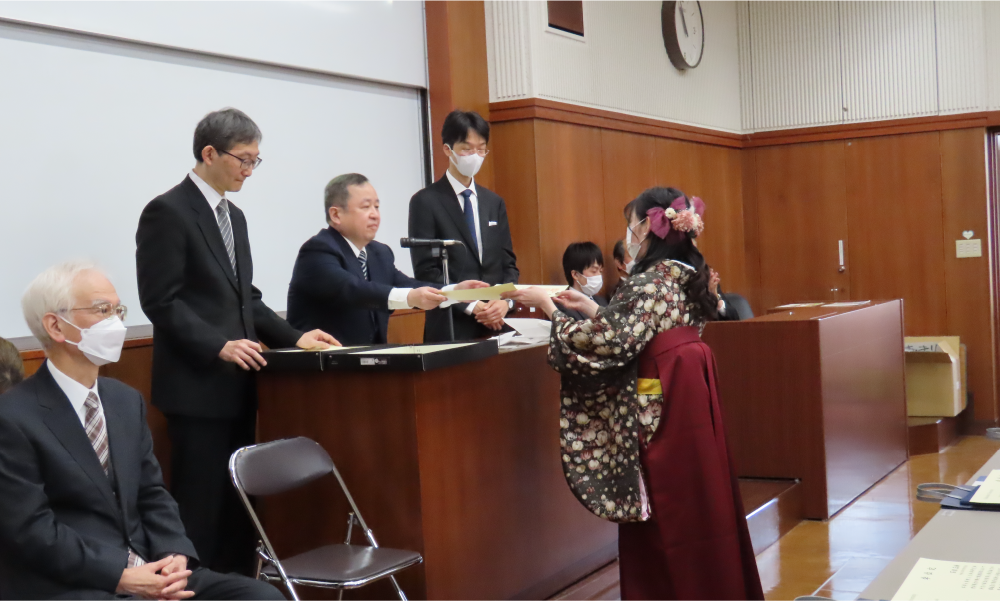Introduction - Department of History
Founded in 1961, the Department of History has engaged in education and research of Japanese, Oriental, and Western history. Currently, there are four full-time faculty members for Japanese history, two for Oriental history, and three for Western history. The number of students is 85 in total per academic level.
Many Japanese universities have separate courses for “Japanese history,” “Oriental history,” and “Western history,” and students have to choose which course they will major in at the time they are admitted to the university. At Gakushuin, however, students do not have to decide their major from the beginning. They are guided to expand their interests in the first year and to determine in which area they will major in the second and third year.
In our “research and discover” activities, we put much weight on finding the truth in history from “historical documents written with words by people in the past (which are particularly referred to as “historical materials”). This is generally known as the “document-based research” method. In this Department, we regard it as very important to gain the ability to seek the historical truth using written materials.
Many Japanese universities have separate courses for “Japanese history,” “Oriental history,” and “Western history,” and students have to choose which course they will major in at the time they are admitted to the university. At Gakushuin, however, students do not have to decide their major from the beginning. They are guided to expand their interests in the first year and to determine in which area they will major in the second and third year.
In our “research and discover” activities, we put much weight on finding the truth in history from “historical documents written with words by people in the past (which are particularly referred to as “historical materials”). This is generally known as the “document-based research” method. In this Department, we regard it as very important to gain the ability to seek the historical truth using written materials.
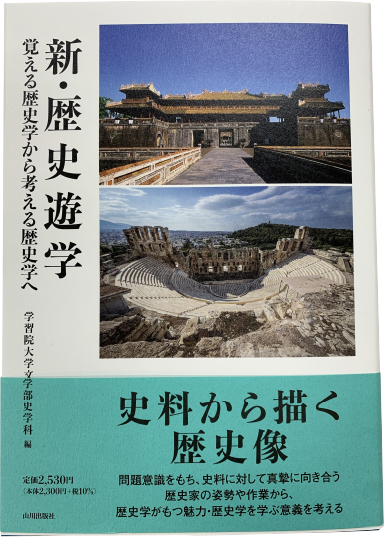 History Study Tour
History Study Tour
Document-based research is an orthodox academic discipline with a long tradition in the study of history, but the issues and areas being studied have changed significantly along with the times. While maintaining the traditional method of study, we also try to expand the scope of research by actively working on new issues and regions.
Whether in Japanese, Oriental, or Western history, it is common for ancient history researchers to use archaeological remains in their study. Our staff has successful results by proactively using newly discovered materials, such as wooden or bamboo writing strips (mokkan, chikukan) and epigraphs (kinseki-bun). Those who specialize in medieval, early modern, or modern history are actively studying new aspects of societies, such as urban areas, religions, performing arts, and social awareness to discover the significance of the society. Even those who specialize in the traditional field of political history also try to reverse the old ways of thinking. More information on these activities can be found in the faculty member profiles.
In class, we try to incorporate the latest information. In the special lecture on Japanese history, students are provided with the newest historical materials available, while new research fields are introduced with a focus on external relationships, social structures, etc. Regions outside of China, such as Southeast Asia, South Korea, and Islamic countries are covered in the special lecture on Oriental history, and Eastern Europe is included in the discussion in the special lecture on Western history.
Whether in Japanese, Oriental, or Western history, it is common for ancient history researchers to use archaeological remains in their study. Our staff has successful results by proactively using newly discovered materials, such as wooden or bamboo writing strips (mokkan, chikukan) and epigraphs (kinseki-bun). Those who specialize in medieval, early modern, or modern history are actively studying new aspects of societies, such as urban areas, religions, performing arts, and social awareness to discover the significance of the society. Even those who specialize in the traditional field of political history also try to reverse the old ways of thinking. More information on these activities can be found in the faculty member profiles.
In class, we try to incorporate the latest information. In the special lecture on Japanese history, students are provided with the newest historical materials available, while new research fields are introduced with a focus on external relationships, social structures, etc. Regions outside of China, such as Southeast Asia, South Korea, and Islamic countries are covered in the special lecture on Oriental history, and Eastern Europe is included in the discussion in the special lecture on Western history.
Students are expected to write a graduation thesis as the final work of their four years of study. This thesis should cover 100 pages (400 characters/page) and be based on their own research, interpretations, and deductions.
Our educational goal is to develop students who have been readers of history “written by somebody else,” into seekers of the truth who “discern and report what nobody else has identified yet.”
Our educational goal is to develop students who have been readers of history “written by somebody else,” into seekers of the truth who “discern and report what nobody else has identified yet.”
